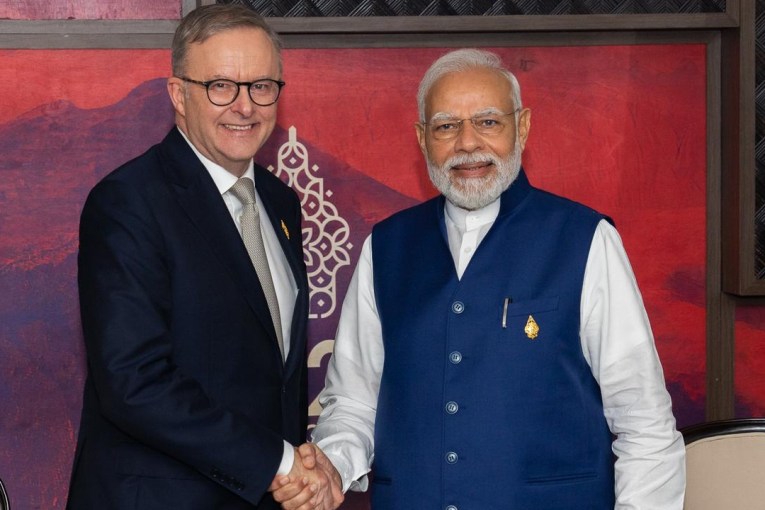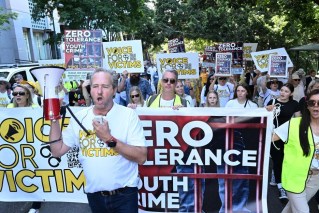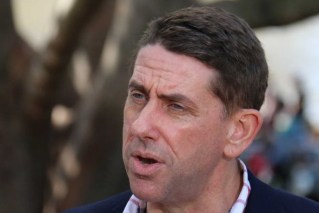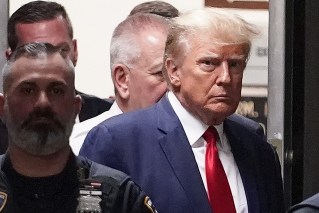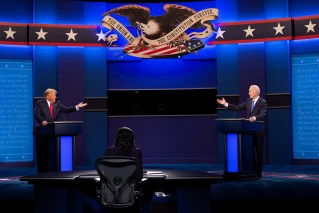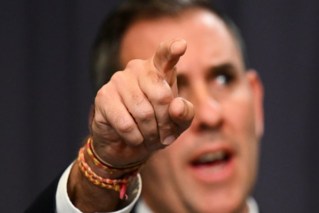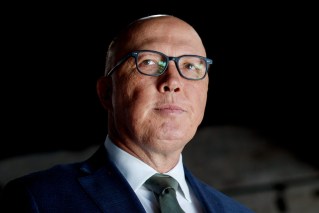Shake it up: The greeting that may signal a thaw in our icy relationship with China
It was no more than a brief handshake and a smile – but Australia’s Deputy Prime Minister Richard Marles has signalled brighter days ahead in Australia’s frosty relationship with China.
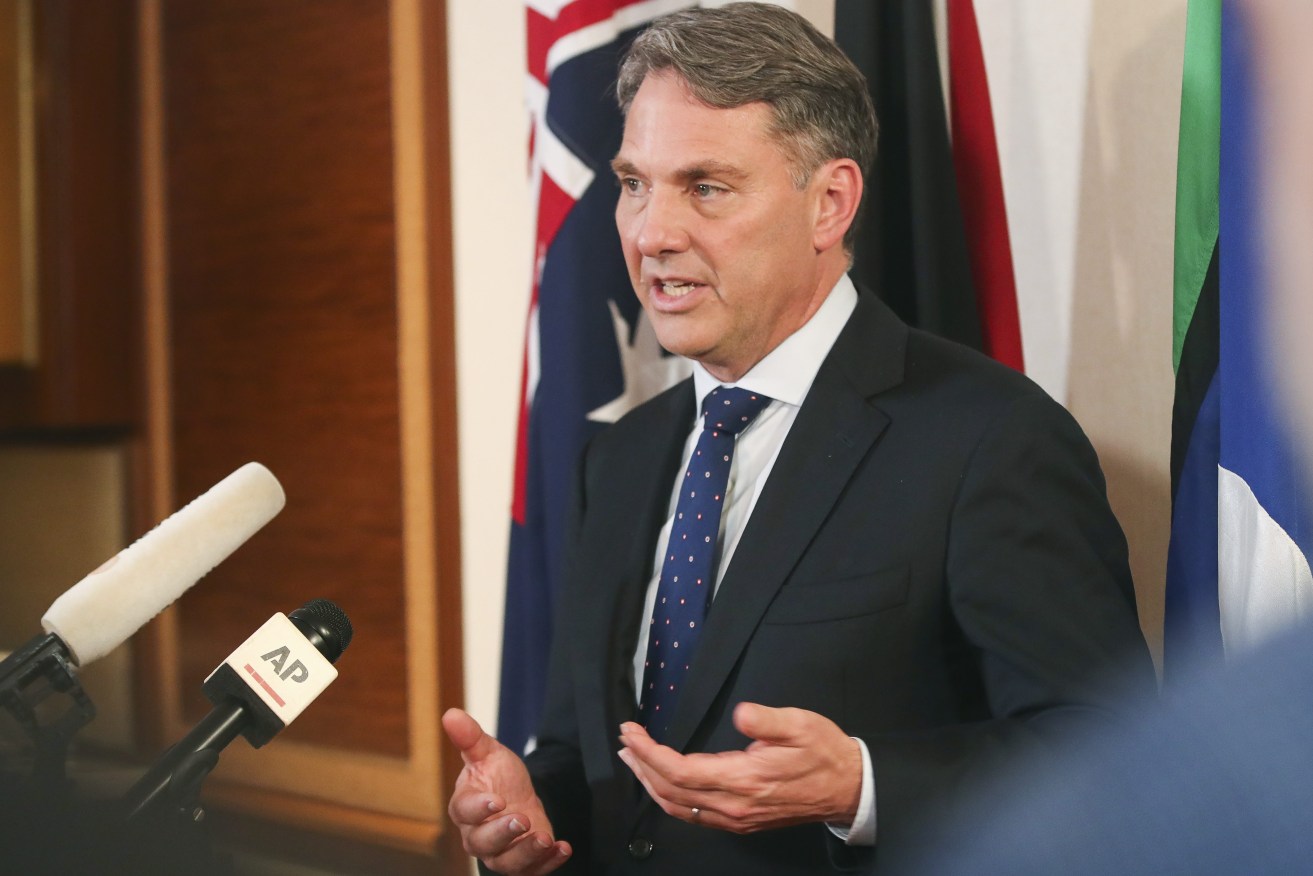
Deputy Prime Minister and Defense Minister, Richard Marles. (AP Photo/Danial Hakim)
Defence Minister Marles’ greeting of his Chinese counterpart, General Wei Fenghe, at a security summit in Singapore brought an end to a period of more than two years in which Australia, alone among its allies, did not communicate officially with its biggest trading partner.
Marles was modest about a near reflex gesture that might prove one of the more consequential diplomatic finger squeezes since the unlikely handshaking renaissance under germaphobe President Trump culminated in a clasp, with Kim Jung-Il over the DMZ in 2019.
“It was literally nothing more than a handshake,” Marles said.
But it also unexpectedly led to the first major meeting between representatives of the countries since communication lines were pulled in 2020.
The moment’s significance depends on what happens next.
It is less clear whether the weekend’s change in tone will begin a substantial easing of tensions but it is the end of an Australian approach to public diplomacy that included a suggestion it was time to prepare for war.
“Australia’s China relationship is complex,” Marles said, after meeting with General Wei on Sunday morning, a bilateral discussion he said involved a frank exchange of views.
“And it’s precisely because of this complexity that it really is important that we are engaging right now.”
Richard Marles described his meeting with General Wei Fenghe as a crucial diplomatic step.
A tense backdrop. Marles had only earlier given a speech critical of China and its militarisation efforts in the South China Sea as seeking to deny the legitimacy of others claims in the region “by force”
The meeting, reporters were told at a press conference, was hosted by the Chinese delegation but no details of discussions was provided beyond broad topics.
“I raised a number of issues of concern to Australia,” Marles said, including the security situation in the Pacific, upended by a recent Beijing-Honiara deal.
Also discussed, the Minister said was what the Defence Department described as the “interception” of an Australian P9 aircraft running surveillance in international airspace days after the election.
One week ago Marles had been briefing the public, as Acting Prime Minister, about the incident, in which a Chinese plane, Defence said, flew dangerously close to the Australian aircraft and then threw a bag of “chaff” or industrial leftovers at it, causing some to be absorbed by its engine.
On Sunday he was placing the accent on the meeting being a chance to speak critically to China.
Marles was the “Manchurian candidate” described by former Prime Minister Scott Morrison in question time, recently questioned about meeting Beijing’s ambassador and diplomatic representatives.
Justin Stevens, a professor of international relations at Sydney University said China was still looking at the possibilities for a future relationship given the two sides resuming negotiations are at an impasse.
“The demands that China has made are not things that Australia can give in on, regardless of which party is in power: The question is: how far can they get?” he said.
“There [have been] signs in the past couple of months China has realised that a lot of their wolf warrior diplomacy of the past was counterproductive. But they’re not going to right their foreign policy to the extent that they’re going to fundamentally change it.”
Professor Jane Golley, head of the ANU’s Australian Centre on China in the World, said that if the handshake and meeting produced greater diplomatic engagement it could only be a positive.
But she said the Albanese government was espousing a critique of China that would continue to frustrate Beijing.
“They keep saying that [the relationship soured because] China has changed and we haven’t,” she said.
“We use the narrative that China is the one getting everything wrong, while we and our allies are preserving peace and inclusiveness in the region. Consider Afghanistan alone. It astounds me.
“We express concern about a potential naval base in Cambodia but the United States has 800 around the world.
“Our own ally is doing it, but still we cannot stomach the idea that another country would be behaving in the same way.”
In November 2019 and months after his election victory former prime minister Scott Morrison met Premier Li Keqiang and committed to working together despite differences.
The Premier sent a note of congratulations to Albanese congratulating him on last month’s election win.
Professor James Laurenceson, of the Australia-China Relations Institute said that the event signified having “adults back in charge” of a relationship and that making even “modest” steps without concession showed the relationship was not fated to sink so low as it did under Mr Morrison.
The ministers are at the Shangri-La Dialogue, which brings together defence ministers and world leaders to talk defence in Asia.
James Robertson is political editor of The New Daily.
